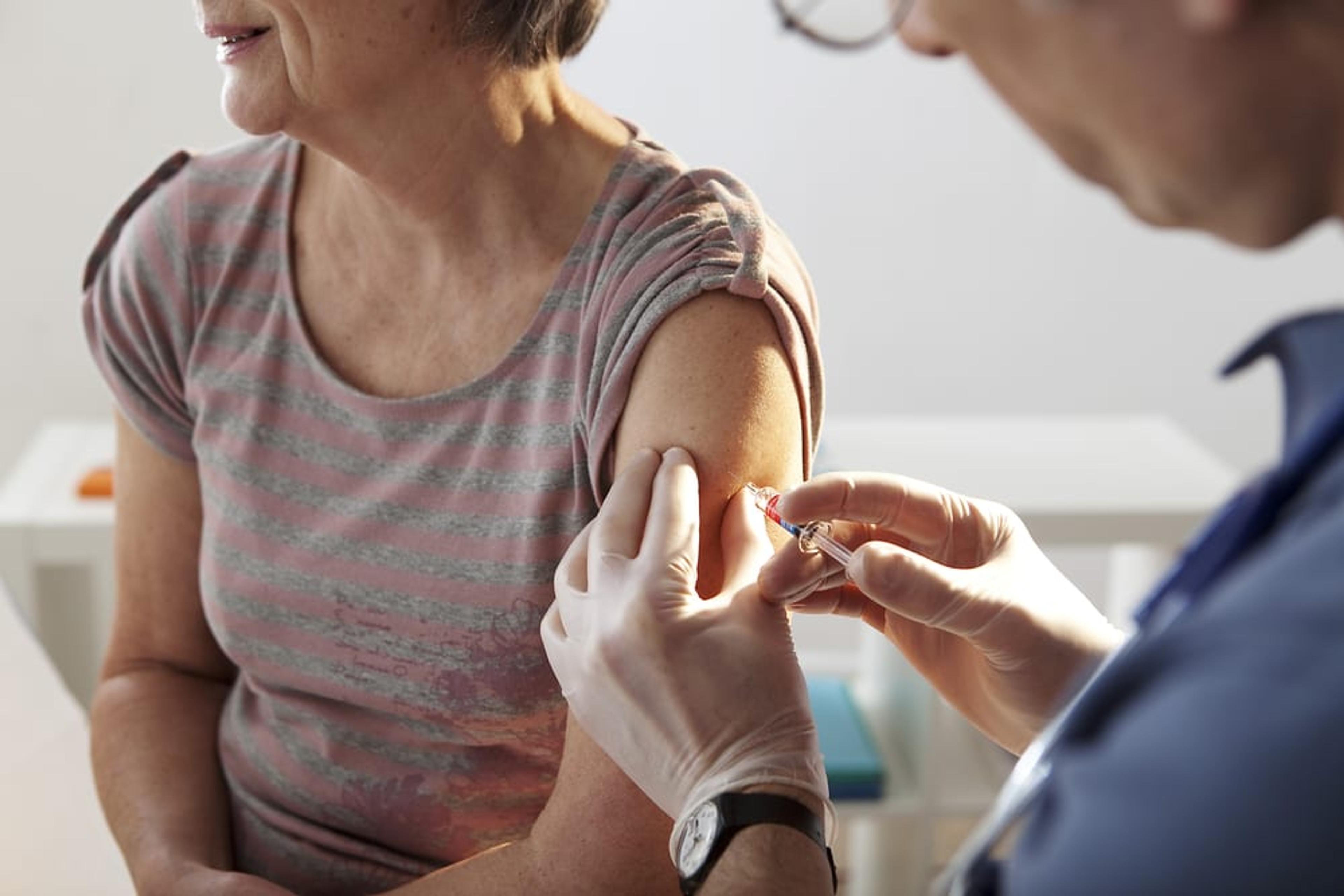
In January 2018, the Centers for Disease Control and Prevention (CDC) updated its recommendation on vaccinating against the shingles virus, preferring a new vaccine called Shingrix®. Since 2006, Zostavax® was the only shingles vaccine on the market. So, the move to now use Shingrix® is important to understand. The CDC recommends that people get the new vaccine, even if they’ve already gotten the Zostavax® shot since it’s more effective. Data shows that the Shingrix® vaccine is 97 percent effective for those 50 and up, whereas Zostavax® is only 51 percent effective. The Shingrix® vaccine is approved for people 50 and older to protect against the development of shingles, a rash that develops on either the right or left side of the body and appears in painful, itchy, inflamed blotches. Also known as herpes zoster, shingles will affect about one-third of Americans in their lifetime. The condition typically lasts two to four weeks. Shingles cannot be passed from person to person, but the virus that causes the condition, varicella zoster virus (VZV) can spread from an infected person and cause chickenpox in someone who never had chickenpox or received the chickenpox vaccine. As you evaluate whether the Shingrix® vaccine is right for you, here are a few other considerations to keep in mind:
- It protects your overall health: The vaccine protects you against contracting shingles and protects others from contracting chickenpox from you.
- It’s a two-dose vaccine: Whereas Zostavax is a one-time injection, Shingrix® requires two shots that you receive two to six months apart.
- It’s covered under most plans: Most Blue Cross commercial plans cover the vaccine for no copay during your annual check-up or at a pharmacy. This can vary, so contact your health care provider before receiving the vaccine to get an accurate estimate of bottom-line costs.
- It should be given even if you previously received Zostavax®: Experts say you should still get the Shingrix® vaccine even if you’ve had or are getting Zostavax® since Zostavax® effectiveness declines over time. If you have done so, wait two months before getting the Shingrix®
For more information, or to get vaccinated, call or visit your doctor or local pharmacy to see if they offer the Shingrix® vaccine and check if it is in stock. Staying healthy and preventing shingles is easier than ever now that Blue Cross Blue Shield of Michigan and Blue Care Network cover the Shingrix® vaccine at pharmacies around the nation. Have any other questions about the Shingrix® vaccine? Share in the comments and we’ll have our experts provide an answer. If you’re looking to learn more about vaccinations, check out these posts:
- Flu Shots: Your Best Bet for Reduced Prescription Use and Cost Savings at Your Convenience
- What You Need to Know About the Hepatitis A Vaccine
- How Do Vaccines Actually Work? A Pharmacist Explains
Photo credit: Shutterstock





